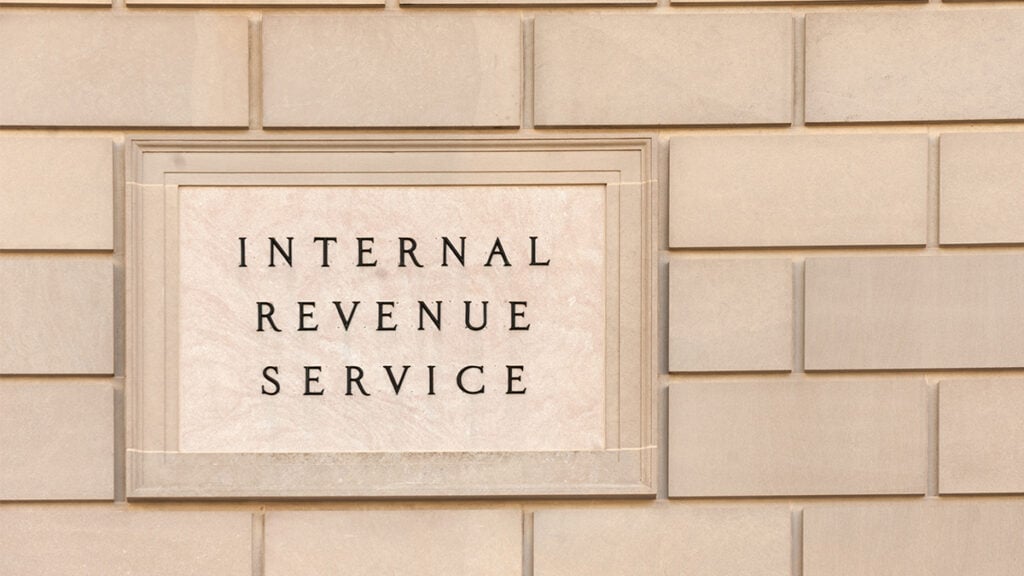The Internal Revenue Service’s capacity to prevent big multinational corporations from avoiding income taxes is facing a generational crisis because the agency is “bleeding tax lawyers.” That’s the finding of a careful new analysis from Michael Rapoport at Bloomberg Tax that documents the exodus of IRS tax attorneys from government tax cases since the Trump administration began its evisceration of the IRS’s enforcement capacity in January. These include several high-profile cases involving companies that have claimed billions of dollars in probably-illegal tax breaks.
At least 170 IRS attorneys have withdrawn from federal Tax Court cases in 2025, and at least 60 of those have done so because they have left the agency entirely, Bloomberg finds. (Others appear to have been reassigned to different roles within the Treasury Department.) The withdrawals mean that the IRS’s capacity to fully pursue tax enforcement cases against prominent tax avoiders including Amgen, Coca-Cola, and Meta is sharply diminished.
This is especially disturbing because all three of these companies are, by their own admission, using tax strategies that tax collectors would likely disallow if they paid attention. At the end of 2024, Meta alone reported having $15.1 billion of “uncertain tax benefits,” which are income tax breaks that the company has claimed despite its own belief that these tax benefits would be disallowed under audit. Amgen had $4.1 billion of these at year-end 2024, and Coca-Cola had $880 million. This means these three companies alone have claimed $20 billion of income tax breaks that tax officials would probably find to be illegal but that the companies are claiming anyway in the hopes they won’t be audited. (As a recent ITEP analysis shows, this hope is well-founded; in the last year alone, companies have reported keeping billions of dollars in such probably-illegal tax breaks because the statute of limitations ran out before they could be investigated.) The departure of key tax attorneys prosecuting cases against these companies likely means the agency will be forced to abandon its efforts to review these probably-illegal tax breaks.
In a helpful companion piece, Rapoport probes what’s driving the “brain drain” of IRS tax attorneys. These factors include a belief that “there wasn’t going to be an interest in investing in the organization to make it successful.”
This belief is far from unfounded, as Jesse Drucker documents in a New York Times report discussing the Trump administration’s demolition of a long-needed Biden administration initiative to root out widespread tax avoidance by large, complicated partnerships. Less than two years after Biden announced the creation of a special unit within the IRS to focus on preventing tax avoidance by large pass-through businesses, Trump’s Treasury Department is systematically withdrawing IRS guidance and regulations designed to root out illegitimate “basis shifting” by these complicated entities—and many of the seasoned tax professionals hired to staff the partnership unit have left the government entirely. Trump’s pullback of partnership tax enforcement is especially mystifying given its huge cost: Treasury officials have estimated that preventing large partnerships’ basis abuse could save U.S. taxpayers over $100 billion.
This regulatory retreat comes at a time when the capacity of the Treasury Department to enforce the tax laws could be sharply limited by the U.S. Supreme Court’s 2024 Loper Bright decision, which generally discourages courts from deferring to administrative interpretations of incompletely-specified tax laws. One clear takeaway from the Loper Bright case (and from the Trump administration’s apparent unwillingness to prevent tax avoidance) is that our federal tax laws can only be effectively enforced going forward if members of Congress take their deliberative role seriously and pass tax laws that are clearly written and don’t require hundreds of pages of regulations to administer.
The good news is that at least some lawmakers are taking this lesson to heart. Oregon Senator Ron Wyden recently introduced the “Preventing Abusive Routine Tax Nonsense Enabled by Rip-offs Shelters and Havens and Instead Promoting Simplicity Act,” otherwise known as the “PARTNERSHIPS Act.” The bill is designed to replace the gaping hole in tax enforcement left by the withdrawal of the IRS regulations on partnership basis abuse. Ironically, the bill’s introduction was roundly ignored by Republican leaders in Congress, who at that moment were busy rushing through poorly-drafted legislation that ultimately became the “One Big Beautiful Bill Act.” This omission is especially puzzling because the tax schemes targeted by the Wyden bill are projected to cost U.S. taxpayers over $100 billion in the next decade, a sum that could have made the new tax law slightly more beautiful.
Senator Wyden’s bill helps lay the groundwork for a fairer business tax regime, by identifying gaping loopholes in the law and specifying details of how they will be closed. This is the right approach to dealing with Republican leaders’ dual assault on IRS funding and administration—when the laws are clear, administration officials will have less leeway to interpret them in harmful ways. But even if the bill was enacted tomorrow, we’d still need a well-funded, fully staffed IRS to ensure that big multinational corporations pay the taxes they owe. This goal is not beyond reach: the Biden administration’s careful plan for revitalizing the IRS enacted as part of the 2022 Inflation Reduction Act remains a blueprint for a well-functioning tax administration—even if it’s a blueprint the Trump administration is busy tearing up. But if Congress doesn’t take immediate steps to halt the “brain drain” of tax professionals from the IRS, the agency will be hamstrung in its efforts to prevent big corporations from raiding the U.S. Treasury to the tune of billions of dollars—and the rest of us will be forced to pick up the tab.





